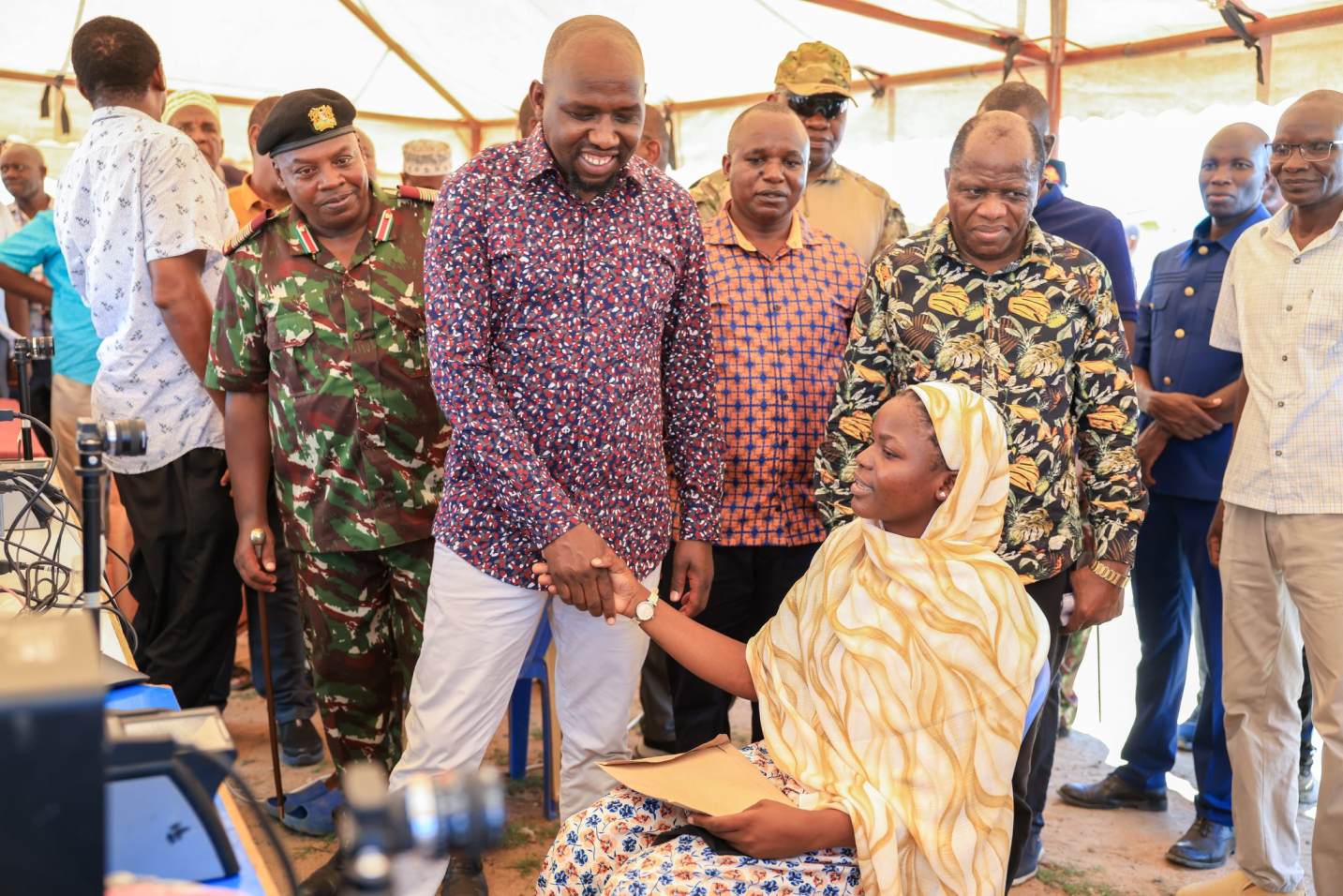Chiefs in insecure regions may soon get firearms, Government says

Residents say that despite ongoing security operations such as Operation Amani Boni, al-Shabaab militants continue to strike sporadically.
The government is considering issuing firearms to chiefs and assistant chiefs stationed in regions frequently targeted by criminal gangs and terrorists.
The proposal, aimed at enhancing their safety, comes in response to growing insecurity in frontier counties where attacks from groups such as al-Shabaab remain a persistent threat.
Interior Cabinet Secretary Kipchumba Murkomen said the decision follows a series of attacks, including the recent kidnapping of chiefs in Elwak, Mandera County, by suspected militants.
Speaking during a security assessment meeting in Tana River County, the CS said the state will conduct thorough vetting before giving out firearms.
"Corners in the frontline where we have established that chiefs are under imminent and persistent attack should have their chiefs armed. They will undergo another training at the APTC," Murkomen said.
Insecurity in regions like Boni Forest has created a dangerous environment for local administrators, some of whom operate in isolated areas without protection.
Residents say that despite ongoing security operations such as Operation Amani Boni, al-Shabaab militants continue to strike sporadically.
In Lamu County, where Murkomen met security teams during the Jukwaa La Usalama, Pwani Edition, concerns were raised over the safety of local leaders.
Ruhia Shee, who chairs the Lamu County National Chiefs Welfare Forum, said chiefs in villages like Pandanguo, Jima, Mangai, and Basuba regularly encounter danger and need protection.
She urged the government to act fast.
"Our chiefs working in Boni Forest are exposed. They are targeted by terrorists. We ask that they be armed so they can at least defend themselves," she said.
Murkomen responded by saying the government will consider each case based on assessments and that chiefs will need licenses and proper training.
"I don’t see any problem in having our chiefs armed. If civilians can apply and get licenses to be gun holders, why not the chiefs?" he posed.
"We shall facilitate a procedure where the chiefs will be assessed, and if they’re proved that their lives are at risk in their areas of operation, we shall provide them with guns and the permit or licenses immediately."
He also noted that a clear mechanism would be developed to ensure accountability.
The proposal has gained support from locals, with some residents of Mokowe welcoming the move. Mohamed Ali, a resident, said the idea would only work if chiefs are trained well.
"The government should go ahead and implement the plan of providing guns to chiefs. It’s a brilliant idea provided they offer them training," he said.
Meanwhile, during the Tana River visit, Murkomen ordered the immediate transfer of officers who have overstayed in their current stations, saying the long stays were hurting morale and efficiency.
"Police officers in Tana River who have served for more than three years to be transferred immediately to other parts of the country, and they should also not be transferred to operational areas," he said.
"They should progress to areas that do not have the hardship they have faced here. I hear others have overstayed for even 14 years; this is wrong."
At the same meeting, over 250 officers voiced their frustration about stagnant deployments, saying the lack of rotation was affecting service delivery.
Residents also cited boundary disputes, limited water resources, and the effects of climate change as key challenges that continue to trigger conflict in the area.
Locals said they were making use of government registration services to get vital documents including IDs, passports, and birth certificates.
